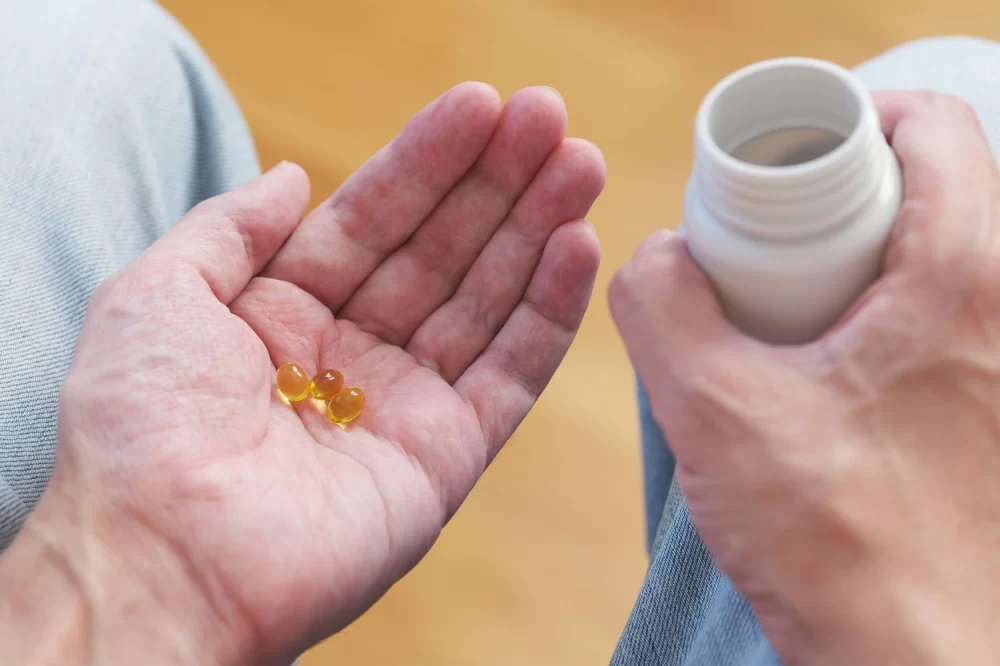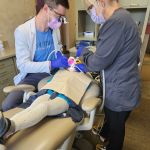
- Role of Vitamin D in Oral Health
- Impact of Vitamin D Deficiency on Oral Care
- How Vitamin D Supports Strong Teeth and Gums
- Practical Ways to Boost Vitamin D for Better Oral Health
- Real-Life Examples Demonstrating Vitamin D’s Effect on Oral Health
- Where to Find the Best Oral Health Products and Services
1. Role of Vitamin D in Oral Health
Vitamin D plays a fundamental role in maintaining oral health by regulating calcium and phosphate metabolism, which are crucial for building and preserving strong teeth and healthy gums. This fat-soluble vitamin influences the mineralization process of the bones in the jaw and the enamel that protects teeth, ensuring they remain resilient against decay and damage.
More than just a vitamin, vitamin D acts like a hormone that modulates immune responses in the oral cavity. It helps reduce inflammation and supports the body’s ability to fight infections such as periodontitis—a serious gum disease linked to tooth loss. Understanding vitamin D's significance can help elevate oral hygiene practices beyond routine brushing and flossing, addressing the root causes of oral health problems.
1.1 How Vitamin D Interacts with Oral Tissue
The receptors for vitamin D are present in various oral tissues, including gum cells and bone-forming cells in the jaw. This interaction encourages the production of antimicrobial peptides that naturally protect the mouth from harmful bacteria. Thus, vitamin D is integral not only for structural support but also for maintaining a balanced oral microbiome.
1.2 Vitamin D and Oral Immune Defense
By enhancing immune function, vitamin D contributes to the reduction of gum inflammation and helps control bacterial growth, which are major contributors to oral diseases. Without adequate levels of vitamin D, the risk of developing infections that affect oral health significantly increases.
2. Impact of Vitamin D Deficiency on Oral Care
A deficiency in vitamin D is a hidden risk factor that many overlook in oral health maintenance. Insufficient vitamin D can lead to weaker enamel and compromised bone density in the jaw, making teeth more prone to cavities and gum recession.
Research has shown that individuals with low vitamin D levels are more susceptible to chronic periodontitis, delayed healing after dental procedures, and even tooth loss. The deficiency may also reduce saliva production, which is essential for naturally cleansing the mouth and neutralizing acids produced by bacteria.
2.1 Consequences for Pediatric Oral Health
Children deficient in vitamin D can suffer from dental enamel hypoplasia, a condition where enamel formation is incomplete, increasing the risk of early childhood cavities. This highlights the importance of monitoring and ensuring adequate vitamin D intake from an early age.
2.2 Long-Term Effects on Adults
For adults, chronic vitamin D deficiency can accelerate the progression of periodontal disease and complicate recovery from oral surgeries. This makes vitamin D status a critical factor for patients undergoing dental treatments.
3. How Vitamin D Supports Strong Teeth and Gums
Vitamin D’s support of oral health is multifaceted. It helps optimize calcium absorption from the diet, which is essential for the mineralization and maintenance of the tooth enamel and jawbone. Without sufficient vitamin D, calcium cannot be effectively used by the body, leading to weaker teeth and bones.
In addition to structural benefits, vitamin D enhances the production of proteins like osteocalcin that are involved in bone formation and repair. It also helps maintain the integrity of the gums by reducing inflammatory responses, thereby lowering the risk of gingivitis and other gum diseases.
3.1 The Connection Between Vitamin D and Saliva
Saliva acts as a natural protective barrier in the mouth. Vitamin D contributes to the production of antimicrobial peptides within saliva, which actively fight harmful bacteria. A well-balanced oral environment maintained by vitamin D can help prevent plaque buildup and tooth decay.
3.2 Vitamin D’s Role in Repair and Recovery
Vitamin D facilitates faster healing of oral tissues after injury or dental surgery. It modulates inflammation and promotes bone regeneration, which is crucial after procedures like tooth extractions or implants.
4. Practical Ways to Boost Vitamin D for Better Oral Health
Ensuring adequate vitamin D levels is achievable through a combination of sunlight exposure, diet, and supplementation if necessary. Spending about 10-30 minutes in direct sunlight several times a week can help the skin synthesize sufficient vitamin D.
Dietary sources rich in vitamin D include fatty fish such as salmon and mackerel, fortified dairy products, egg yolks, and certain mushrooms. For individuals living in areas with limited sunlight, supplements can be an effective way to maintain optimal vitamin D status.
4.1 Monitoring and Testing Vitamin D Levels
Regular testing of vitamin D levels can help tailor oral health care plans, especially for people at higher risk of deficiency like the elderly, people with darker skin, or those with limited sun exposure. Consulting with healthcare providers can ensure that supplementation is done safely and effectively.
4.2 Integrating Vitamin D with Oral Hygiene Routines
Combining vitamin D optimization with daily brushing, flossing, and professional dental check-ups creates a comprehensive approach to oral health. For personalized advice and high-quality oral care products, visitors can explore Dentistry Toothtruth for expert recommendations.
5. Real-Life Examples Demonstrating Vitamin D’s Effect on Oral Health
Consider the case of Sarah, a 35-year-old who struggled with recurring gum inflammation despite meticulous oral hygiene. After a routine blood test revealed her vitamin D levels were deficient, she incorporated vitamin D supplements and increased safe sun exposure. Within months, Sarah noticed reduced gum bleeding and overall improvement in oral comfort, confirmed by her dentist.
Another example is a community health study where children receiving vitamin D-enriched foods showed significantly lower rates of tooth decay compared to peers without supplementation. This reinforces the preventative potential of vitamin D in dental care from an early age.
These stories underline how addressing vitamin D deficiency can have tangible benefits for oral health, making it an essential consideration for anyone serious about maintaining a healthy smile.
6. Where to Find the Best Oral Health Products and Services
For those looking to enhance their oral care with products that support vitamin D benefits or to consult professionals knowledgeable in the relationship between nutrition and dental health, Dentistry Toothtruth offers a curated selection of supplements, dental hygiene products, and expert services tailored to individual needs.
Whether you need advice on vitamin D supplementation or want to explore advanced oral health care, Dentistry Toothtruth is a reliable destination that combines science-backed recommendations with user-friendly solutions designed to keep your smile healthy for years to come.







 Farrow Orthodontics - City Center5.0 (458 review)
Farrow Orthodontics - City Center5.0 (458 review) Smiles Orthodontics4.0 (158 review)
Smiles Orthodontics4.0 (158 review) Gentle Dental Rio Vista4.0 (152 review)
Gentle Dental Rio Vista4.0 (152 review) North Shore Smiles Pediatric Dentistry5.0 (52 review)
North Shore Smiles Pediatric Dentistry5.0 (52 review) Southill Dental Group5.0 (364 review)
Southill Dental Group5.0 (364 review) David K Buran, DMD5.0 (107 review)
David K Buran, DMD5.0 (107 review) The Importance of Oral Health Education During Pregnancy for a Healthy Pregnancy
The Importance of Oral Health Education During Pregnancy for a Healthy Pregnancy Best Tips for Brushing Your Teeth Properly for Healthy Gums: Essential Techniques for Oral Health
Best Tips for Brushing Your Teeth Properly for Healthy Gums: Essential Techniques for Oral Health Why Skipping Dental Checkups Can Lead to Bigger Oral Health Problems
Why Skipping Dental Checkups Can Lead to Bigger Oral Health Problems Advantages of Porcelain Dental Restorations
Advantages of Porcelain Dental Restorations How Can Diabetes Cause Tooth and Gum Problems? Preventing and Managing Oral Health Issues
How Can Diabetes Cause Tooth and Gum Problems? Preventing and Managing Oral Health Issues Healthy Habits for Promoting Good Oral Health and Hygiene: Tips for a Healthy Smile
Healthy Habits for Promoting Good Oral Health and Hygiene: Tips for a Healthy Smile